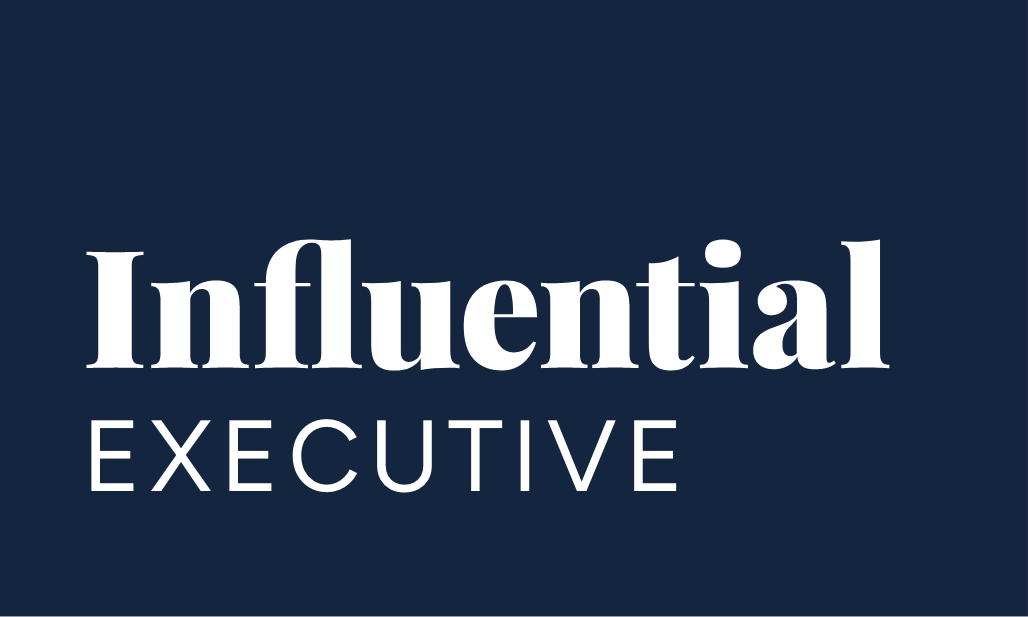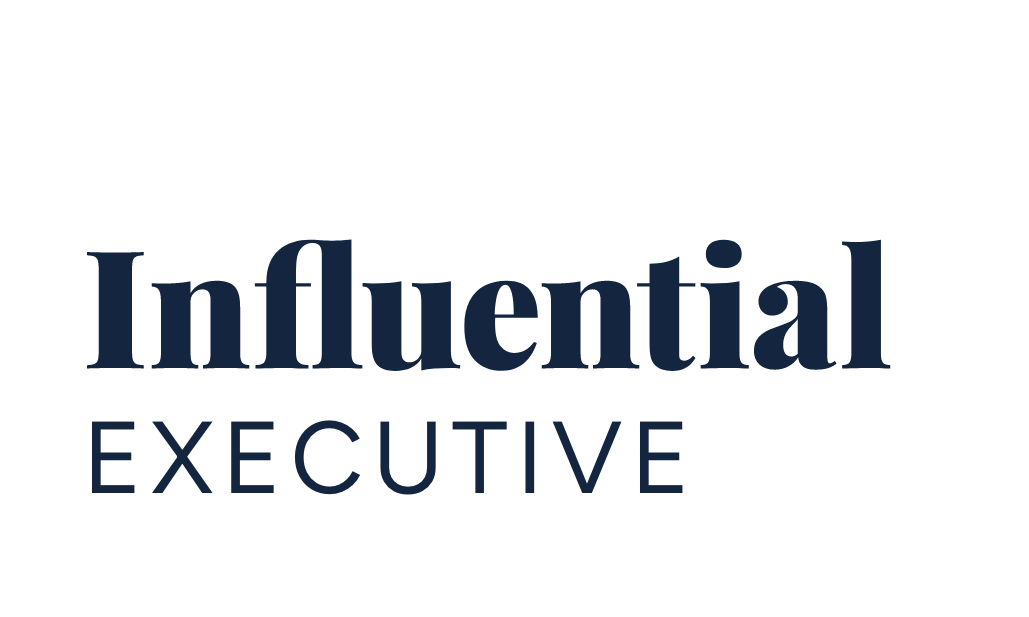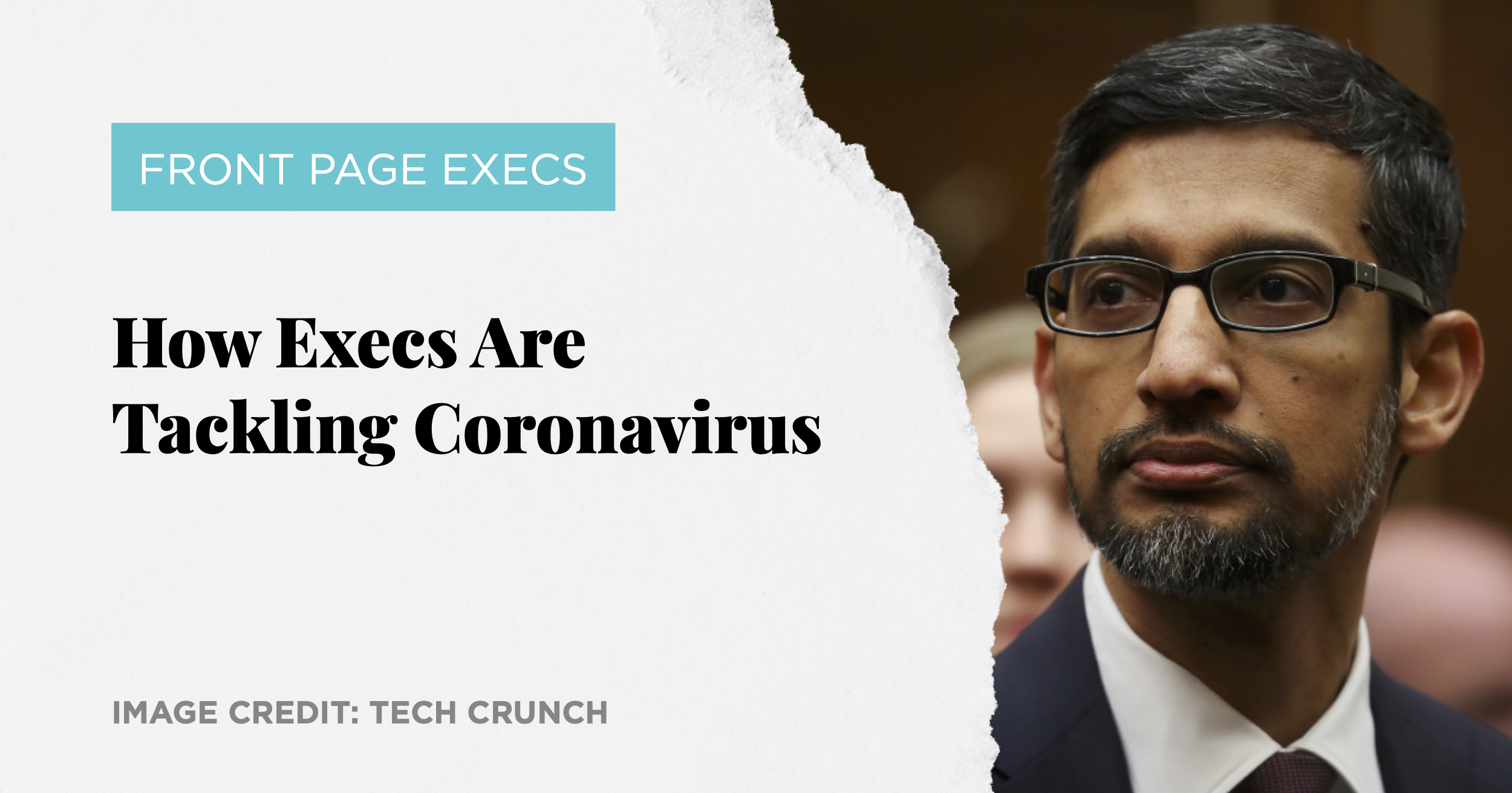The global coronavirus (also known as COVID-19) epidemic is a cause for concern for many, and reasonably so: the highly contagious virus is spreading rapidly, with no current known cure or vaccination for it.
It is precisely the highly contagious nature of the virus that is not only affecting humans, but is in turn affecting consumer markets and workplaces on a massive scale. Another result of this epidemic is widespread panic, ultimately resulting in a large presence of fear-mongering rhetoric online and in news media.
The most important thing a person or company in a position of power can do at a time like this is use their platform to provide factual and productive information to the public. In light of this, many companies and executives are taking to social media to tackle misinformation and diffuse fear-based conversations, as well as share relevant updates, prevention tactics, and company best practices in the face of the contagion. Staying calm and informed is the best way for humanity to persevere rather than be divided through this fearful time, and social media provides an effective tool to quickly disseminate reliable information, especially given its ability to connect users globally.
The Fight Against Misinformation: Mark Zuckerberg
In times like these, it is important that the most popular social media platforms are doing all that they can to fight against misleading and potentially harmful information. Since people access these platforms worldwide, there is an expectation that conversations surrounding the epidemic will happen on these platforms.
Social media platforms, like Facebook, are tackling false information and coronavirus claims when it comes to advertising. Business Insider confirmed in an interview with Facebook that the platform recently placed a ban on ads that include promises to cure COVID-19 or attempt to capitalize on fear-based concerns about the virus.
In line with this announcement, Facebook CEO Mark Zuckerberg recently posted a statement on his personal page. Zuckerberg used this as a chance to announce that Facebook is working closely with the World Health Organization (WHO), Centers for Disease Control and Prevention (CDC), and UNICEF to ensure that “timely, accurate information” on the coronavirus is disseminated. He also announced, “[Facebook] is giving the WHO as many free ads as they need for their coronavirus response along with other in-kind support. We’ll also give support and millions more in ad credits to other organizations too and we’ll be working closely with global health experts to provide additional help if needed.”
Zuckerberg also used this opportunity to discuss ways to help those who have been affected by the virus, share prevention tactics, and some of the latest scientific research that is being done. This post is a good example of how executives can use their personal accounts to share important information. Users are more likely to put their trust into leaders who openly showcase authenticity and a willingness to tackle global issues. Zuckerberg’s full post can be seen below.
Health and Science: Tedros Adhanom Ghebreyesus and Bill Gates
When it comes to global health epidemics, many turn to global health and scientific leaders for direction and information.
This is why social media is an important platform for Director-General of WHO, Tedros Adhanom Ghebreyesus. He uses his Twitter platform to share up-to-date news about how WHO is tackling coronavirus. Twitter is a great platform to utilize for short news headlines and topics that can quickly inform users about relevant, informative topics. Ghebreyesus also makes use of relevant infographics (pictured below), which clearly display simple yet effective instructions.
What a cute way to express love during #COVID19 (hoping that soap was used 🙂)!
To be safe from #coronavirus and protect your loved ones, wash your hands regularly with soap and water, or rub them with alcohol-based solutions. https://t.co/kZLPimKRMh pic.twitter.com/UZOVakAK5C
— Tedros Adhanom Ghebreyesus (@DrTedros) March 5, 2020
Additionally, WHO has created an account on TikTok to create short video clips that are “aimed at reducing the risk of spreading COVID-19 and setting the record straight.” With tips on how to protect oneself, as well as preventing the spread of the disease to others, this move is motivated by the need to diffuse widespread panic. Since TikTok is largely popular amongst the teenage population, this move on WHO’s part was extremely smart and strategic when it comes to promoting reliable information on the coronavirus to more impressionable youth.
Executives such as Bill Gates also openly discuss the coronavirus on social media, such as how the disease works. In posts such as the one pictured below, Gates uses a Tweet to link to his personal blog which goes into further detail on the topic. As a prominent leader in the business and philanthropy sectors, it is important for a figure like Gates to use his platform to provide reliable sources to the public. He has a very large Twitter following at 48.9 million. Gates’ interest in science and research also takes up a large portion of his social media content, so using his platforms to discuss scientific advancements and best practices on preventing coronavirus aligns with his brand.
COVID-19 could be a once-in-a-century pandemic, but the good news is that there are steps we can take now to slow its impact and help us respond more effectively when the next epidemic arrives. #COVID19 https://t.co/7alFsXL27h
— Bill Gates (@BillGates) February 28, 2020
The Bill and Melinda Gates Foundation have also recently announced they will be funding a study into a cure for the virus. As mentioned in The Guardian, “15,000 medicinal molecules [are] to be shipped to a leading laboratory in Belgium to be tested as a potential cure to the coronavirus.”
Remote Work: Sundar Pichai, Jack Dorsey, and other CEOs
As health organizations, researchers and scientists work to find a solution, working remotely is being heavily encouraged as a means to prevent the spread of coronavirus in the workplace.
This massive shift in thinking is intriguing, as previous to the epidemic, workplaces have typically been known to be against working from home or remotely. However, many companies are now taking the lead in encouraging this method of work by providing comprehensive guidelines on best practices.
For example, CEO of Take-Two, Strauss Zelnick, thinks that the epidemic urges companies to rethink former reservations on remote-work, as it will likely have to be implemented in the long-term for many workplaces. Speaking about companies in general, Zelnick states, “A lot of us who were skeptical about remote work are going to be less skeptical about it.” While Zelnick is supportive of this preventative tactic, his social media presence is lacking because his Twitter account is set to private. This means that his social media updates are not visible to the public. Our recommendation is that CEOs should not set their social media profiles to private, as their online content is an effective way to promote their brand and achieve business goals. In this case, by openly promoting working from home, this could influence other executives as well.
CEO of Google, Sundar Pichai, has been using his Twitter page to encourage communication and connectivity when it comes to staying safe in the face of the coronavirus. In the post featured below, Pichai announced that Google will be rolling out free access to their advanced Hangout Meets video-conferencing tool for G-Suite users. This move aims to make working remotely more efficient for businesses, educators, and school students. This move also encourages more people to accept working remotely as a legitimate option, as maintaining a high level of connectivity to co-workers, teachers and students is imperative to productive work. This strategy also simultaneously promotes Google’s brand, as it encourages users who currently do not have a Google account to sign up so that they can access this free resource.
We want to help businesses and schools impacted by COVID-19 stay connected: starting this week, we'll roll out free access to our advanced Hangouts Meet video-conferencing capabilities through July 1, 2020 to all G Suite customers globally. https://t.co/OWWF7s5jjR
— Sundar Pichai (@sundarpichai) March 3, 2020
In line with this, CEO of Twitter, Jack Dorsey, recently posted a Tweet that read:
Out of an abundance of caution and care, both @Twitter and @Square are taking significant measures to help lower the probability of spread of #coronavirus #covid19, including strongly encouraging all of our employees globally to work from home if able. More here:
— jack (@jack) March 3, 2020
This tweet is part of a thread that goes into further detail on Twitter and Square’s personalized plans, with a significant focus on prioritizing the global impact of encouraging people to work from home. With major corporations such as Twitter and Square setting this precedent and being vocal on social media platforms, this move not only serves to highlight the severity of the situation, but will likely inspire other companies and workplaces to follow suit.
Other CEOs that have also taken to social media to promote remote working best practices include Wade Foster of Zapier, a web automation company. Foster retweeted his company’s post featured below, in which Zapier posted a link to the company’s “Ultimate Guide to Remote Work.” Zapier takes this as an opportunity to not only provide a valuable resource, but does so in a way that highlights his company brand. However, one of the drawbacks of this post is that Zapier does not make use of any hashtags, which ultimately limits the post’s reach. Our recommendation is that companies and executives should not only include hashtags on their Twitter posts, but should tap into one or two trending and relevant hashtags in order to increase the post’s reach.
If you’re working remotely this week, we know how easy it can be to get distracted at home. We suggest…
1. Chunking your tasks
2. Setting yourself a challenge
3. When all else fails, just get started https://t.co/ySclELxtKj— Zapier (@zapier) March 3, 2020
Another set of examples come from the two CEOs of Coinbase, a digital currency exchange. Brian Armstrong and Philip Martin both use their Twitter platforms to discuss the coronavirus, particularly by adopting the “calm/rational approach” when it comes to disseminating relevant information. Coinbase has also created their own workplace document that is actually directed related to the virus, entitled “Coinbase Coronavirus Planning & Comms.”
https://twitter.com/brian_armstrong/status/1232378605738455040
In a follow-up tweet, Armstrong praises his employees for their work. This is a good social media strategy: users like to see posts where top-level executives notice employees and are aware of the work that their team puts into the company. Posts such as this one make the executive come across more relatable, authentic, and human.
https://twitter.com/brian_armstrong/status/1232378842368495616
Canceled Events
As the number of COVID-19 cases rise globally and at a rapid rate, many companies and corporations have cancelled major annual events.
While this may be disappointing for many of those who were planning to attend these events, this tactic is being utilized as a prevention method. As mentioned earlier, COVID-19 is highly contagious and is suspected to be spread via person-to-person contact. Since many of these annual events involve thousands of people travelling from all over the world to convene in one space, the chances of the virus spreading are much higher. Therefore, prevention is the best method to practice, at least until advancements have been made on treatment and/or ways to control the disease.
Some notable events that have been announced on social media platforms such as the Google I/O Conference, Game Developers Conference, Mobile World Congress, and Facebook Global Marketing Summit.
One example of an executive utilizing social media to present information surrounding a cancellation is Facebook’s Director of Developer Platforms, Konstantinos Papamiltiadis. Papamiltiadis wrote a Tweet expressing the difficulty of the decision for Facebook cancelling its Global Marketing Summit, but that ultimately that global health and safety came first:
This was a tough call to make; F8 is an incredibly important event for Facebook;it's one of our favorite ways to celebrate the community, but we need to prioritize the health and safety of our developer partners, employees and everyone who helps put F8 on. https://t.co/GlnRldJF4V
— Konstantinos P (@papamiltiadisk) February 27, 2020
The post links to a further statement Papamiltiadis wrote on Facebook’s main blog, which goes into further detail about Facebook’s plans to move forward regarding the information that would have otherwise been shared at the Summit. Papamiltiadis uses his personal Twitter page to disseminate important information about what prompted Facebook’s decision, but also as a way of personally empathizing with disappointed attendees. His authenticity helps to diffuse the situation for users, as well as promoting the Facebook brand.
Our Tips for on How to Deal with the Coronavirus Epidemic
One of the trends we have noticed amongst the aforementioned corporations, leaders and executives who have been turning to social media is that Twitter seems to be one of the more effective platforms to share coronavirus-related information on. This is likely because content can easily be skimmed, as well as shared by users, while simultaneously making a notable impact. While platforms such as Facebook and LinkedIn are also great platforms to share information on, the character limit on Twitter enforces those who post to make sure their content is more succinct and eye-catching. If executives are looking to share longer news information, remember that threads can be started on Twitter (as we see from many of the examples above).
Executives who want to use their social media account to share information on the coronavirus should take caution about the types of things they post given how quickly misinformation can spread online. This includes properly vetting reliable news sources and that the information being posted is correct. With this in mind, linking to third-party articles is one of the most common ways for executives to share information. One method is to research what health organizations are saying about the virus, such as WHO, UNICEF, and CDC.
Ultimately, communication is imperative when dealing with situations such as a global epidemic. With how quickly the coronavirus spreads, utilizing social media effectively for communication and sharing helpful information will help to make way for global change.
Is your marketing team ready to get your executive(s) on social media? Download our free step-by-step guide on how to get your executive on social. In the meantime, why not follow Influential Executive on Instagram for interesting business stats, inspiring leadership quotes from today’s top executives, and more!


